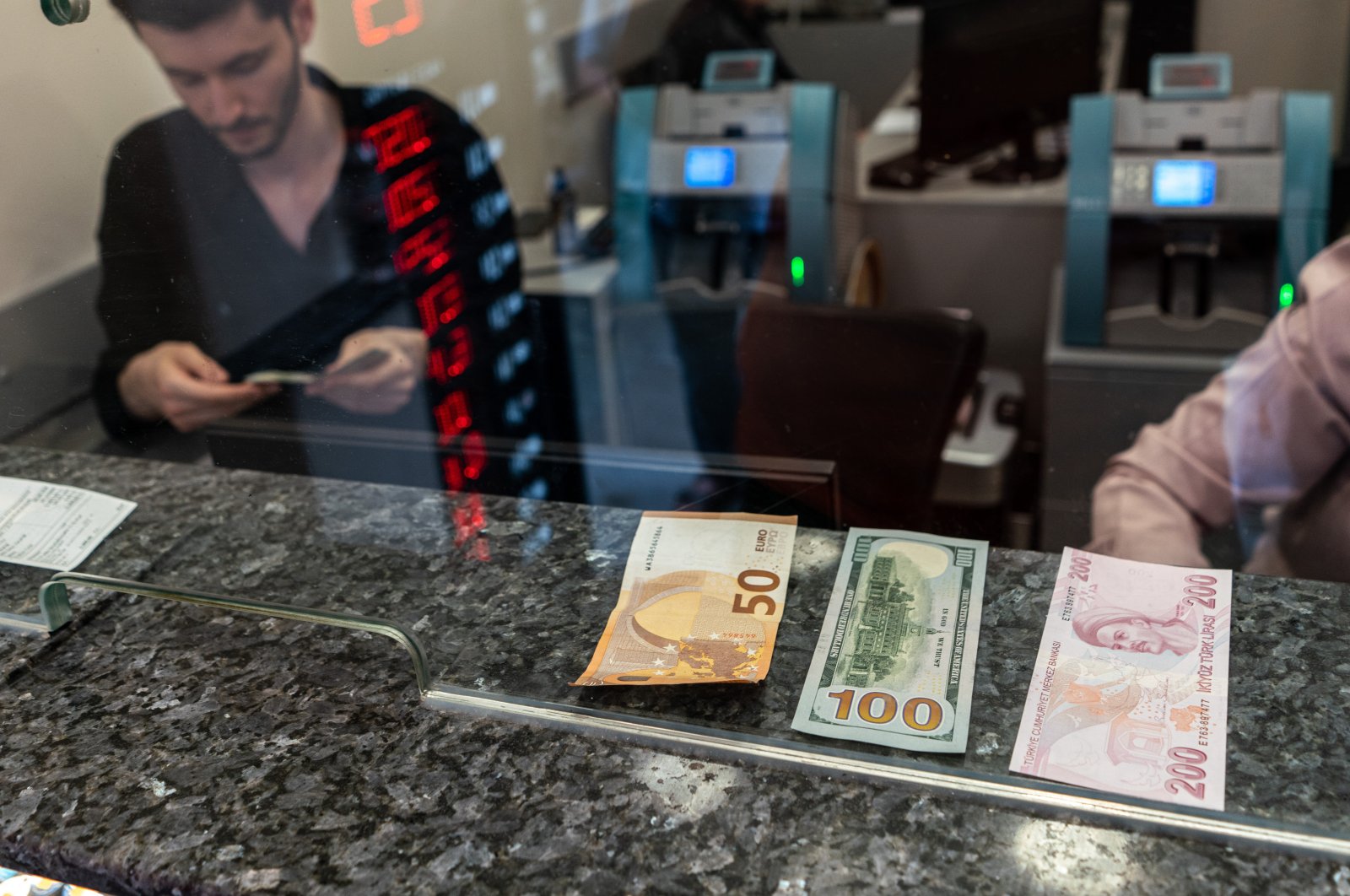
The main Turkish benchmark stock index opened Wednesday at 8,647.94 points, increasing 0.34% or 29.37 points from the previous close, while the Turkish lira was widely unchanged in response to the U.S. election results despite the slide across emerging markets (EMs) led by a strong drop of the Mexican peso.
On Tuesday, Borsa Istanbul's BIST 100 index fell 0.52% to close the day at 8,618.57 points with a transaction volume of 68 billion liras ($1.97 billion).
As of 11:20 a.m. local time (8 a.m. GMT) on Wednesday, the BIST 100 index was further up at 8.683,31 points while the Turkish lira traded at 34.22 against the dollar, widely stable.
The return of Republican Donald Trump to the White House was sinking most emerging-market currencies on Wednesday, sending their benchmark index, MSCI Intl., down.
MSCI's index tracking currencies in major developing markets was on track for its biggest one-day drop since February 2023, down 0.6%, as the dollar strengthened over 1.4% and U.S. Treasury yields spiked.
A gauge for emerging market stocks also lost 0.6% and was close to a one-month low.
The Hungarian forint, Czech koruna, South African rand, and Polish zloty all closely followed the Mexican peso in losses early on Wednesday, while the Indian rupee and Hong Kong dollar saw a mild drop.
The Turkish lira and the Argentine peso were among the top performers.
Mexico's peso sank to its weakest level in over two years on Wednesday, extending a streak of volatility and weakness for the emerging markets bellwether.
The peso dropped as low as 20.8038 per dollar for the first time since August 2022, more than 3% weaker than its previous close – the biggest such tumble since Mexico's election in summer roiled domestic assets. While emerging market currencies suffered broadly against a soaring dollar, the peso chalked up some of the biggest losses.
"The Mexican peso has been hit hard," said Chris Turner, global head of markets at ING. "High volatility is also undermining the carry trade and it’s hard to rule out a move to 22.00 over coming weeks."
After Trump's 2016 presidential victory, the peso plummeted around 8.5% on the dollar to a then-historic low.
The U.S. currency's climb began after very early indications of a Republican win in Georgia and continued to gather pace, with the dollar index hitting a four-month peak.
Markets had been fretting that the U.S.' southern neighbor could face trade barriers under a possible Trump presidency.
Traders, in general, were rushing to buy dollars in anticipation that a Trump victory would mean implementing his protectionist policies that would support the U.S. currency.
Dollar's surge
Elsewhere, the dollar's surge against the yen rallied stocks more than 3% in Tokyo at one point thanks to gains in exporters, while markets Sydney, Singapore, Taipei, Mumbai and Bangkok also rose.
However, there were losses in Shanghai, Seoul, Wellington, Manila and Jakarta.
Hong Kong was also well down – at one point diving almost 3% – on worries about the impact of a Trump presidency on China's economy and relations between Beijing and Washington.
Traders had been given a strong lead from Wall Street, where all three main indexes climbed more than 1%.
While the result of the election is being closely followed globally, it is of real interest in China after Trump vowed to ratchet up a trade battle with the economic titan by imposing massive tariffs on goods from the country.
The vote comes as Chinese leaders hold a key meeting to hammer out a package of stimulus measures aimed at kick-starting growth and supporting the colossal property sector, which is mired in a painful debt crisis.
The yuan weakened 1.1% – its biggest one-day drop since Oct 2022, amid reports that lenders were selling dollars to cushion the yuan's decline.
Ukraine's hryvnia strengthened by 2% and international sovereign bonds gained with some traders betting that a Trump presidency could mean a quicker end to the Ukraine-Russia war.
India's rupee hit a record low and South Africa declined 1.3%, while the Turkish lira firmed by 0.2%.
Equity indexes in India added over 1%, while Turkish stocks jumped about 2.8%, as prices of crude oil – a key resource for the net importers – dropped over 1%.
In central and Eastern Europe, Hungary's forint led declines with a 0.8% drop against the euro to mark a fresh 22-month low, while Poland's zloty weakened 0.3% ahead of a central bank interest rate decision later in the day.
